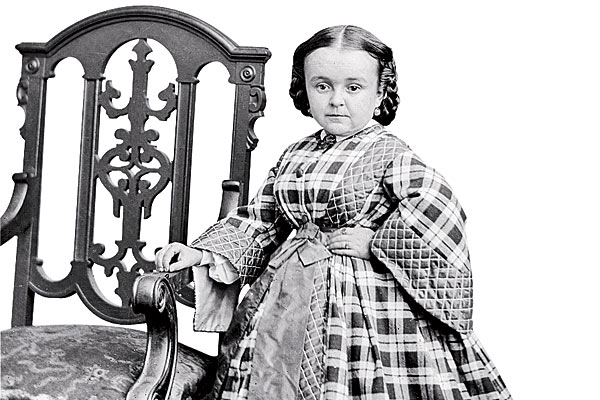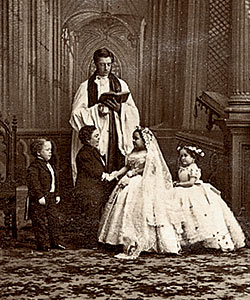
In 1863, the showman P. T. Barnum hosted 2,000 guests at the New York wedding of a pair of his protégés: 2-foot-8-inch Lavinia Warren and 2-foot-11-inch Charles Stratton, a.k.a. General Tom Thumb. The occasion ran alongside the Civil War on the nation’s front pages, one of many peculiar stories told in The Autobiography of Mrs. Tom Thumb (Random House, $25). We caught up with the Glen Ellyn–based author, Melanie Benjamin, who mined the real Lavinia Warren’s writings for a historical novel.

Lavinia “Vinnie” Warren published lengthy autobiographic essays, compiled in a posthumous book. Why write a fictitious first-person account of someone who wrote her own version of events?
She mainly only listed the towns where she appeared and the people she met. She doesn’t write about her feelings a lot. Sometimes I got frustrated with this ever-optimistic, cheerful voice that seemed to be masking so much.
Maybe she didn’t say those things because she was the sunny person she projected.
But then that wouldn’t be very interesting. [Laughs.]
You suggest that Vinnie’s marriage to Charles Stratton was never consummated. Was Vinnie even in love with Charles?
I think she probably saw an opportunity—just like P. T. Barnum did—where one little person is interesting and two together is a phenomenon. By all accounts, Charles wasn’t the most intelligent of people—very happy-go-lucky, simple—and he didn’t have a chance to develop. When he was five years old, Barnum plucked him from the bosom of his family and turned him into a miniature performer. Vinnie came to Barnum older and sought her fame.
Barnum exploited Vinnie. But did she feel used?
She exploited herself in the beginning. Then she quickly seemed to delude herself. She always wrote of her drawing rooms and her soirees and her private audiences—she would write as though good friends dropped in, totally turning a blind eye to the fact that they were paying for the privilege, that she was being sold.
Is Vinnie’s story a tragedy?
There’s an optimism to her life story that reflects an optimism in America at the time. They’re parallel stories. Yet there is tragedy because of her self-deception, because she began to believe that she was beloved and that she was famous not because of her size.


